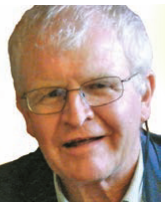Connections that build trust are critical for leaders
“Leadership is not about you, but it starts with you,“ observes Gary Burnison, CEO of Korn Ferry. A key place to start is building relationships with co-workers and colleagues that go deeper than the common “what is in it for me?” perspective. The best leaders know they need to continuously invest significant time to build connections with those on their team, that this ongoing responsibility can never be taken lightly.
Many relationships are transactional, observes author and consultant Rozelle Haydée White, helping us, “do something, get something or learn something.” She adds: “So many relationships have an agenda.”
Of course, employees have tasks to complete, and supervisors need to communicate job responsibilities and expectations.
But the most effective leaders go deeper, beyond the transactional, getting to know their employees and colleagues in meaningful ways that help create productive workplaces.
Set aside time for conversations that go beyond day-to-day job tasks, embracing a spirit of authenticity and curiosity. I recommend that supervisors schedule formal meetings of 30 to 60 minutes with each employee at least once every month. Of course, work tasks will be a part of the discussion, but the conversation should also include the employee’s personal goals, values and aspirations. Get to know employees as people and share about yourself.
After all, people work better when they feel part of a team with bosses and colleagues who care and take an interest in them as individuals, not just as cogs in the wheel. A combination of feedback and encouragement, in the context of open and honest discussion, can make a big difference in the lives of those you work with and the business’s bottom line.
I have written before about Steven Covey’s idea of listening to understand as opposed to listening to respond. In their book, “What You Don’t Know About Listening Could Fill a Book,” Jon White and Alexandra Taketa argue that poor listening is a common cause of leadership ineffectiveness. Asking open-ended questions in the spirit of curiosity is the most important listening skill, they assert. These kinds of questions invite the other person to share more, facilitating meaningful conversations and building positive relationships.
In a recent webinar, Stephen M. R. Covey, son of the famous author, observed, “People don’t want to be managed; they want to be led, they want to be inspired.” Leaders, he said, need to, “be efficient with things and effective with people,” adding, “with people, fast is slow and slow is fast.”
I found that last phrase to be especially brilliant. When we interact quickly or superficially with people, we have little influence and make little impact. But when we take the time to get to know them and build a relationship, we build trust and can have significant influence. This ties directly to my definition of leadership: actions and behaviors that influence the actions and behaviors of others.
In that same webinar, Heather Younger, author of “The Art of Active Listening: How People at Work Feel Heard, Valued, and Understood,” added that listening is the driver of trust and makes people feel powerful. “Do people feel important when with you?” she asks. To achieve better employee outcomes, start by looking inward at your actions. By changing my own behaviors first, I am more likely to influence others.
Guy Itzchakov and Avraham Kluger wrote in Harvard Business Review that becoming a better listener “requires training, persistence, effort, and most importantly, the intention to become a good listener.” They offer various tips: Give 100 percent attention (including putting down your phone), resist the urge to interrupt, avoid jumping to conclusions, refrain from offering solutions, ask questions that benefit the speaker, and (afterward) reflect on what you might have done differently.
How are you doing at work when it comes to building relationships? Are you investing enough time in this important personal development area? Are your connections with co-workers and colleagues mostly transactional, or do they go deeper and build trust? Are you applying effective listening skills with questions that communicate curiosity? What specific steps could you take to up your relationships, listening skills and leadership game?
We each have an extraordinary opportunity to make a difference in people’s lives, including our own. Don’t underestimate your impact!
Douglas P. Teschner, founder of Growing Leadership LLC, can be reached at dteschner@GrowingLeadershipLLC.com.